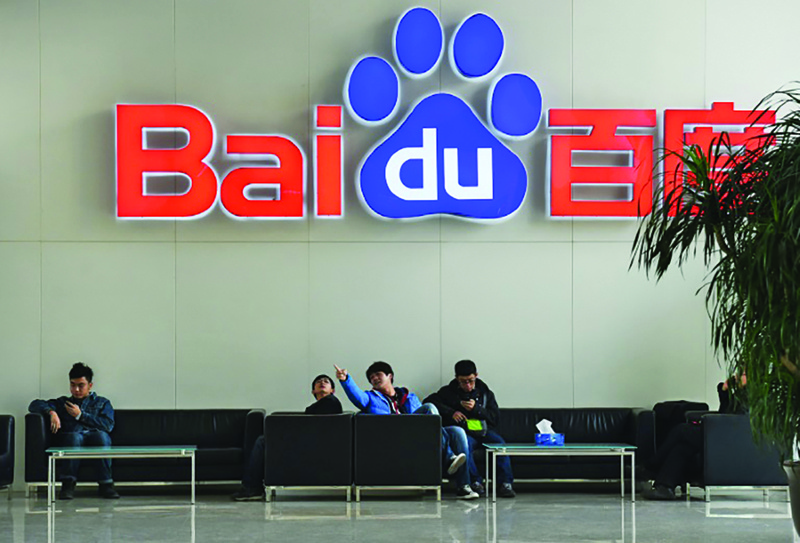 HONG KONG: Baidu is the latest Chinese tech giant to opt for a secondary listing in Hong Kong as relations with the United State sour.
HONG KONG: Baidu is the latest Chinese tech giant to opt for a secondary listing in Hong Kong as relations with the United State sour.
HONG KONG: Chinese search engine Baidu debuted on Hong Kong's stock exchange yesterday after raising $3.1 billion in its initial public offering, the latest mainland tech giant to flock to the financial hub. Shares rose a modest 0.8 percent to HK$254 from their listing price of HK$252 after the market opened. Over the past 18 months Hong Kong has seen a flurry of Chinese tech firms hold IPOs in the city, part of a drive to list closer to home as relations between Beijing and Washington sour.
Until the recent trade tensions, New York tended to be the favored place for those companies to raise international capital. But now Hong Kong is dominant, something Beijing's authoritarian leaders have encouraged at a time when it is also looking to rein in the influence of some Chinese tech firms like Alibaba. Last year Hong Kong raked in an impressive $49 billion in IPOs. Some of the debuts in Hong Kong are dual listings such as Baidu, which is already traded on the Nasdaq in New York.
Others are purely Hong Kong listings such as the medical arm of Chinese e-commerce giant JD.com which raised $3.5 billion in its December homecoming. More are on the way. Chinese companies looking at selling shares in the city include Tencent's music group and video site Bilibili.
Anti-trust crackdown
The trend has delivered a shot in the arm for Hong Kong after a turbulent couple of years that have been blighted by US-China trade tensions, Beijing's crackdown following huge democracy protests and the coronavirus pandemic. Last year's IPO total would have been even bigger had Alibaba's secondary listing not been pulled at the last minute on Beijing's orders. The troubles burst into public view last October when Alibaba co-founder Jack Ma committed the cardinal sin of publicly criticizing China's regulators for their increasingly dire warnings concerning his company's financial arm, Ant Group.
Beijing has since responded with an anti-trust crackdown in response to concerns in China over chaotic online lending and accusations of powerful platforms squeezing merchants and misusing consumer data. Baidu, for now, appears to have avoided that fallout. Once one of China's top tech firms, it lost out to competitors like Tencent and Alibaba who were much quicker at adapting to mobile, and creating the kind of super apps that are now ubiquitous on the mainland. Instead the company has spent billions in areas such as artificial intelligence, language learning and autonomous driving, betting on smart devices and vehicles of the future.
It has also invested in making its own computer chips at a time when there is a severe global shortage of semiconductors. Both AI and microchips have been identified by China's Communist Party as core industries to focus on as the two rival vie for global influence. In a recent interview with Bloomberg, Baidu founder Robin Li welcomed Beijing taking a closer look at the huge influence amassed by his tech rivals, likening it to similar concerns in the US over companies like Facebook and Google.
"You just cannot imagine the number one and number two guy all of a sudden merging and gaining more than 90 percent of market share in the US," he said "But that happened quite a few times in China before. That's not good for innovation. So I think that the antitrust push is justified," he added. - AFP
.jpg)
